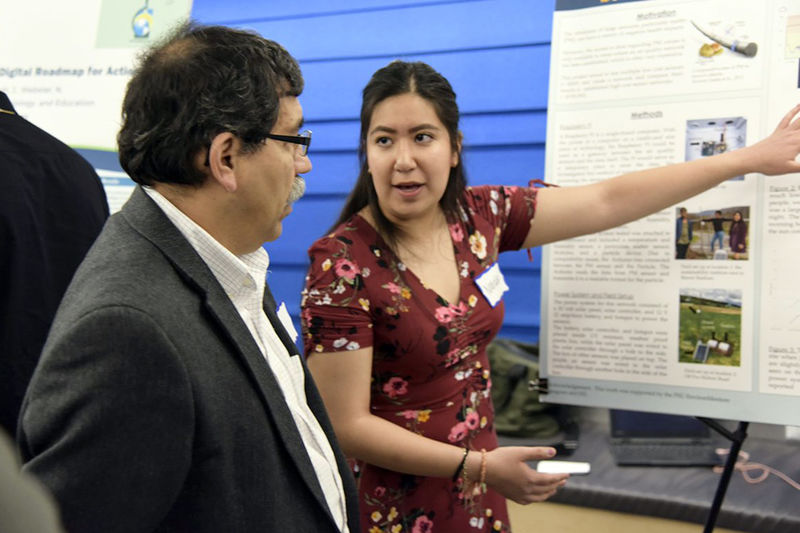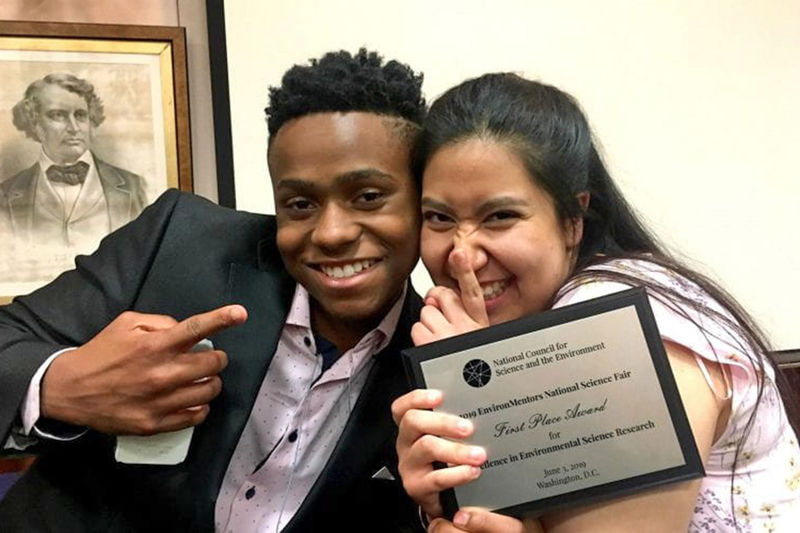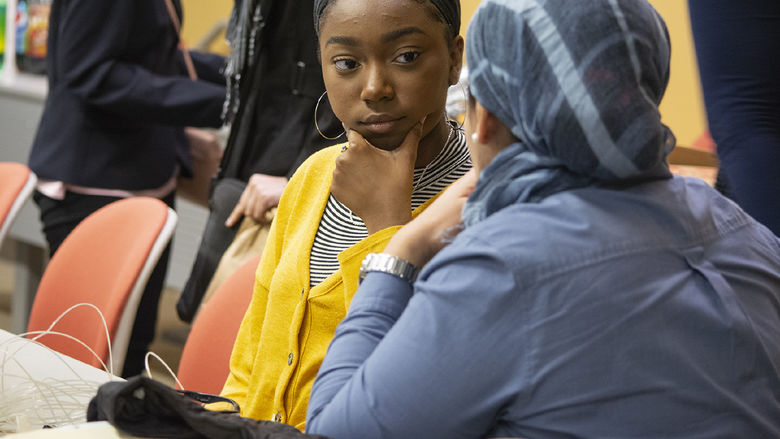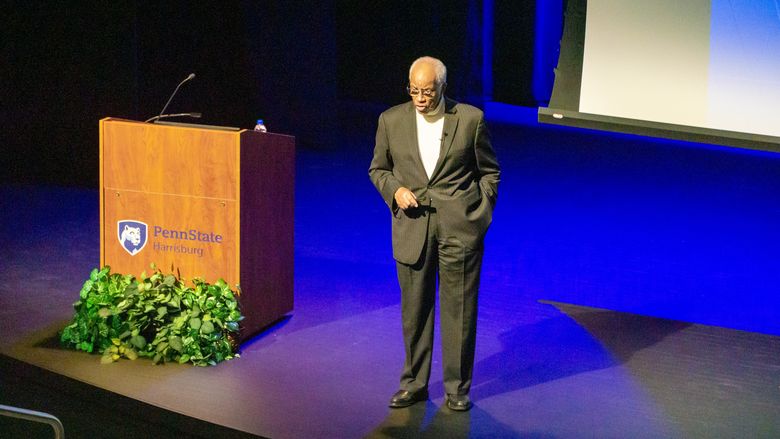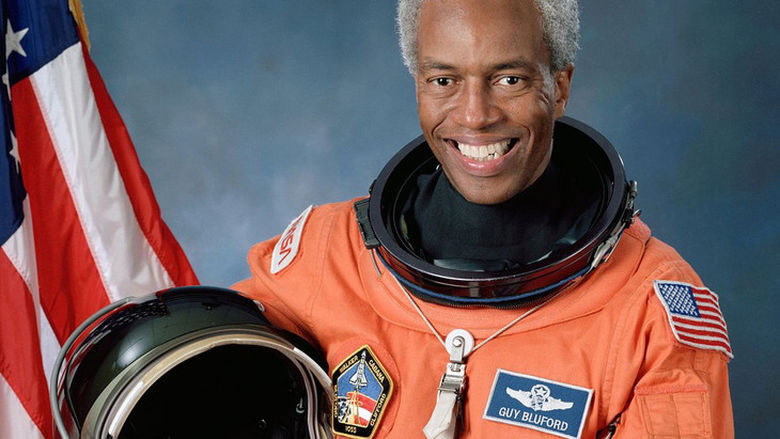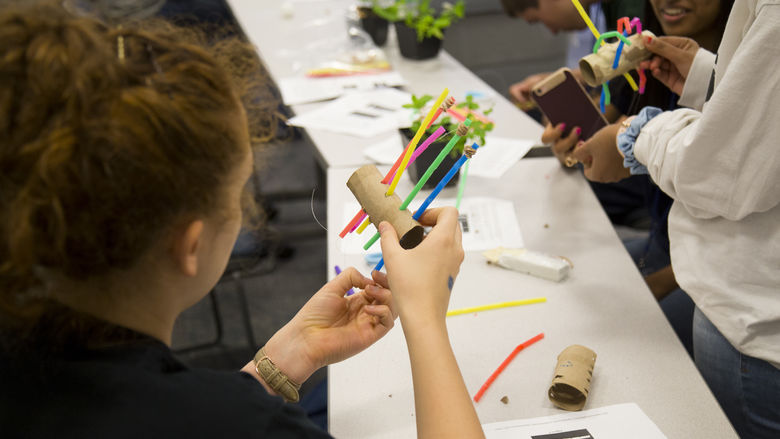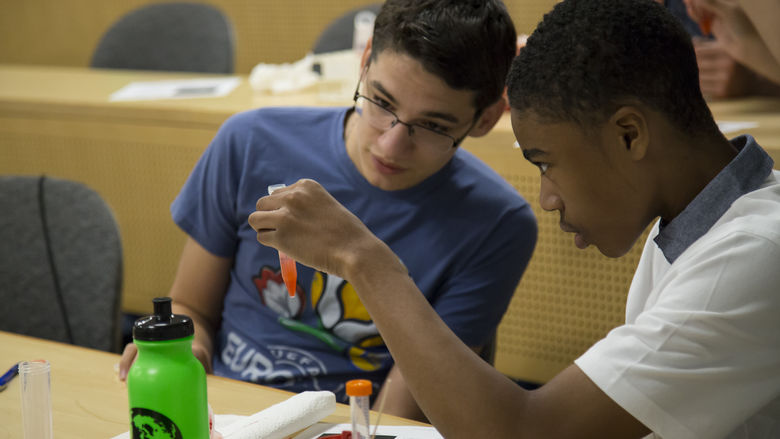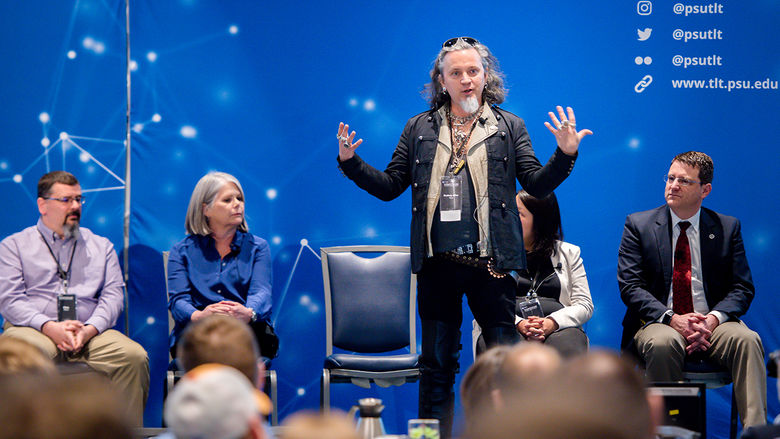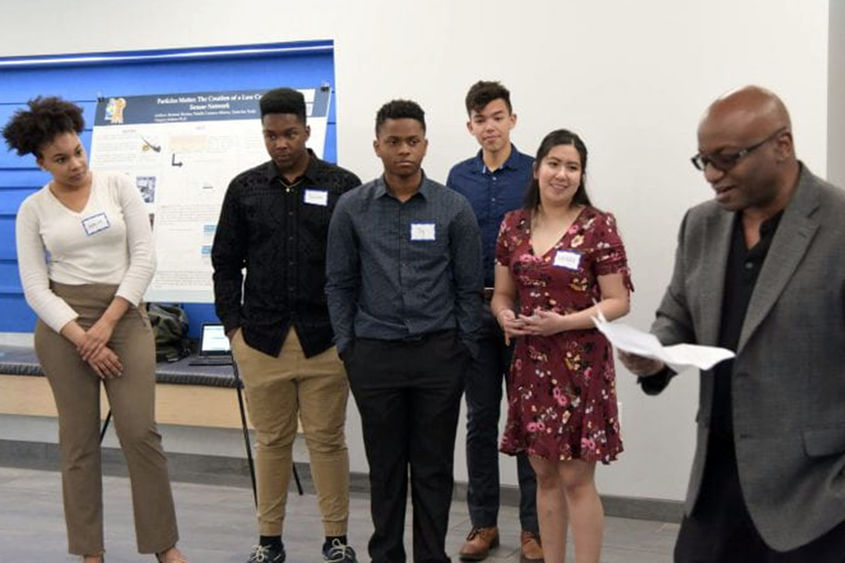
Gregory Jenkins, right, professor of meteorology and atmospheric sciences and adviser for EnvironMentors at Penn State, said the program exposes underrepresented high school students to STEM fields so that they begin a path toward successful careers even before they enter college. EnvironMentors is seeking mentors at all levels, including faculty, graduate students and undergraduates.
UNIVERSITY PARK, Pa. — EnvironMentors at Penn State, a local chapter of a national program focused on engaging and preparing underrepresented high school students for careers in STEM fields, is looking for faculty mentors as it expands into its second year.
The program seeks to increase the percentage of underrepresented students in STEM fields by ensuring that the high school students who participate in the program get exposure and awareness to STEM-related degrees and career options and are ready to excel once they enter the workforce. According to the National Science Foundation, African Americans, Hispanic American and Native Americans represent less than 7% of the STEM workforce.
The mentorship program links high school students with undergraduates at Penn State, who are then advised by faculty.
“If no one in your family has ever attended college then something like research doesn’t come naturally. You’re thinking of college from a different perspective. You don’t really understand what role faculty members play. This is a new way, through student mentorships, to understand what it’s all about.”
—Gregory Jenkins, professor of meteorology and adviser for the Penn State chapter of EnvironMentors
Under the guidance of mentors, students plan and conduct research projects that help them acquire the necessary skills to build successful careers. The current partnering school district is State College Area School District and partnering campuses include Penn State Harrisburg, Penn State Shenango and Penn State University Park. Starting this fall, the program plans to partner and welcome new school districts in Harrisburg and Sharon, Pennsylvania.
“If no one in your family has ever attended college then something like research doesn’t come naturally,” said Gregory Jenkins, professor of meteorology and adviser for the Penn State chapter. “You’re thinking of college from a different perspective. You don’t really understand what role faculty members play. This is a new way, through student mentorships, to understand what it’s all about.”
During the program, students spend two hours conducting research with faculty mentors and four hours with their undergraduate mentors each week. The undergraduate student mentors act as lab assistants to the faculty mentors. This year, the chapter is using a research pool model, which expands research mentors to include tenured and tenure-track faculty, research faculty, post-doctoral scholars and research teams. Research mentors can link up with the other campuses to collaborate on projects or serve as a research mentor there. This research pool model provides flexibility, allowing research mentors to choose when they can participate over a three-year period.
“Research shows that faculty engagement is one of the most important factors at retaining students, especially during the first and second year,” Jenkins said. “And this is especially true for students who are first-generation or low income or minority students. This connection is a way to retain the students who quite often may feel lost in the community.”
Faculty members who can assist students in a lab setting are especially in need; however, faculty or undergraduate students interested in mentoring high school students are encouraged to apply.
“Our undergraduates feel a great sense of responsibility to be better, do better, while assisting the high school students,” Jenkins said. “Our undergraduates are able to connect with the high school students and relate to a lot of the issues they’re facing. And if they come to Penn State that relationship will continue. It’s a follow-through program all the way.”
For more information, visit the EnvironMentors website or attend one of the two information sessions that will be held at 2 p.m. on Aug. 7 and Aug. 14 in 529 Walker Building.
The Penn State chapter of EnvironMentors is part of a national access program through the National Council for Science and the Environment. Since its creation in 1992, the group has paired with more than 2,000 students with mentors through its network of chapters throughout the nation. Penn State joined in 2018.
Patricia Craig
Marketing and communications, Earth and Mineral Sciences
